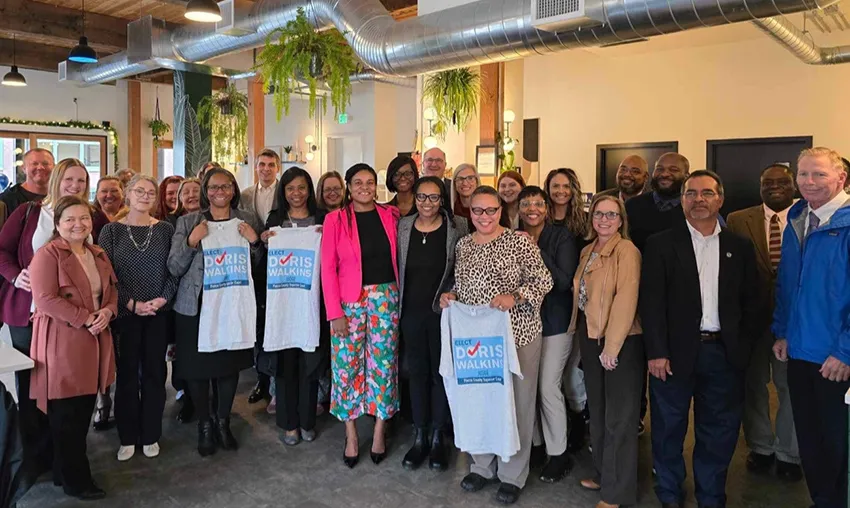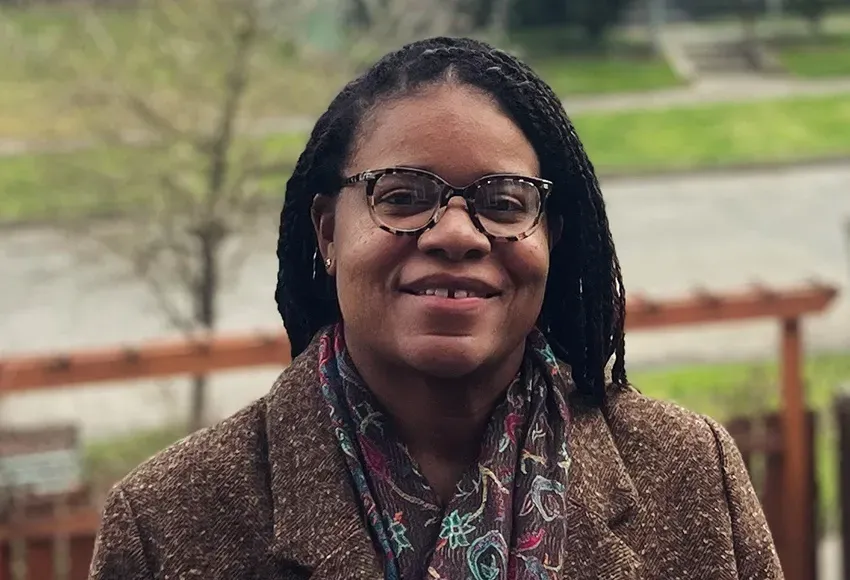Doris Walkins has come a long way since the early days of her career working as a women's domestic violence advocate in college. Though she's since traded in her small YWCA office for a seat as a Pierce County Superior Court commissioner, she still holds on to her passion for public service.
"I've represented, throughout my whole career, the most vulnerable litigants in our court system," Walkins said in an exclusive interview with the SGN.
After spending almost a decade working with survivors of domestic abuse, Walkins decided to take the next step in her career: attending Seattle University and taking the bar exam. "Right after I got my bar results, I had a solo practice for 16 years until I became a Pierce County commissioner in June 2022," she said.
During her tenure as an attorney, Walkins continued to serve the most vulnerable in the community as a public defender. "People... [are] reliant on their public defender to safeguard their legal rights, be prepared, build a legal argument, and make sure of things they know as a person," Walkins explained. "The person with the law degree and the legal license is there to argue for them."
As a public defender, Walkins got to know many people on their worst days. She had to learn how to build trust with citizens who felt the law had turned its back on them. She was there to help parents reunite with their children, to settle disagreements between parties dissolving their marriages as a guardian ad litem, to put together child support plans, and even to oversee estate plans.
As a commissioner, Walkins is now using the skills she cultivated as an attorney and learning to step into a new role. Now she presides over bench cases, oversees criminal cases, and maintains a courtroom where all parties can feel heard and respected.
"My biggest thing is making sure I listen to the parties and show [them] respect," she said. "Even if they leave my courtroom and I don't rule in their favor, I want them to still have the feeling that they had a fair shot and that they were listened to. That's one of my biggest things: that I am prepared, that I have read the materials, and that I am listening to the arguments. I'm making a careful consideration of the arguments of the parties and giving as fair a ruling as I can."

Experience, identity, and impartiality
Walkins is aware that there is more riding on this election than just her personal and career success.
"What I want to do is give people encouragement to go after these positions," she said. "If you know you're qualified, if you have the résumé, if you have the experience, don't let your fear of putting yourself out there hold you back.
"A lot of people have a fear of being attacked or think people [won't] vote for them because they're Queer or because they're a Black woman. You just have to put yourself out there, have confidence, and let the voters decide. If they decide not to vote for you, that's their decision. If they decide to vote for you, that's their decision as well, but I think what I want to do is show people that we are viable candidates and... should be putting ourselves out there and running for office."
While judicial positions are not partisan, Walkins acknowledges that everyone brings a perspective forged through their experiences and identities to the bench.
"Everyone's individual identities – no matter who you are – you're going to bring that to whatever you're doing, but I think what you have to do is measure," she said.
Walkins' career in public service and experience as a Black Queer woman have shaped many of her beliefs and judicial philosophies, but she also knows how to leave her opinions at the door and rule with a fair and open mind.
"You can't project your own experiences with the world onto the cases you're presiding over," Walkins explained. "I think you can use your professional skills and your experience in the world to sort of be able to see those nuances that maybe someone who doesn't have all of your experiences might not pick up on. I think all of those are good for making sure you can make really informed decisions, but you can't let your own individual worldview or experiences dictate how you're going to rule on things. You have to rule based on the evidence before you and the arguments that are made."
Walkins prides herself on being an active member of the community in Pierce County and looks forward to serving on the Superior Court bench in collaboration with the other justices and, as she said, "being a part of progressing it even further, as a whole, as a bench, and also [serving] the community members of Pierce County."


